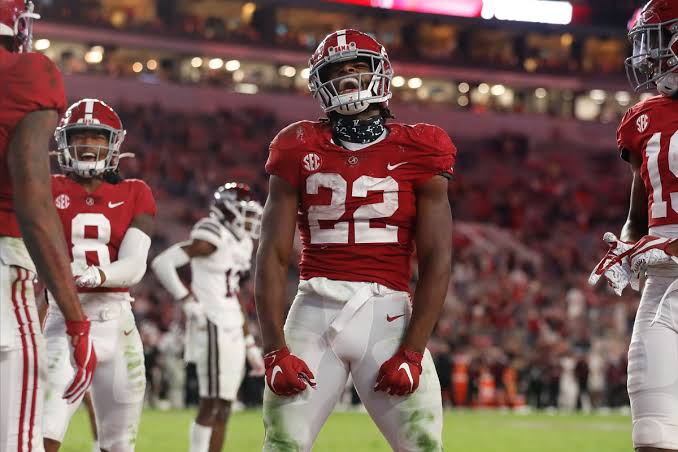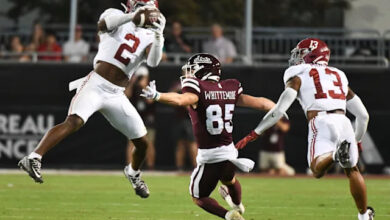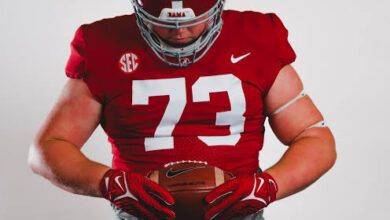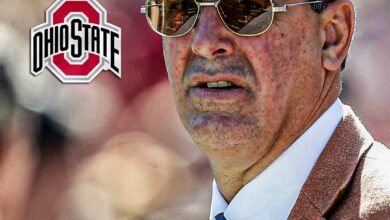
In a move that has sent shockwaves through the college football community, Nikhai Hill-Green, a former standout linebacker for the Michigan Wolverines, has decided to transfer to the Alabama Crimson Tide. This decision, announced with a mixture of excitement and defiance, has ignited a firestorm of controversy among fans, alumni, and analysts alike.
Hill-Green’s choice to leave Michigan—a program steeped in tradition and currently thriving under head coach Jim Harbaugh—has raised eyebrows, especially given the timing. Michigan is fresh off back-to-back Big Ten championships and consecutive appearances in the College Football Playoff. Many believed Hill-Green was poised to solidify his legacy in Ann Arbor. Instead, he’s chosen to align himself with Alabama, a perennial juggernaut that has long been the face of dominance under Nick Saban.
For some Michigan fans, the decision feels like a betrayal. Hill-Green was seen as a cornerstone of the Wolverines’ defense, and his departure has sparked debates about loyalty, program culture, and the ever-changing dynamics of college football. “It’s a slap in the face,” one fan vented on social media. “How do you walk away from a program that believed in you, especially now when we’re on the cusp of greatness?”
But Hill-Green’s reasoning paints a different picture. In an interview following his announcement, he cited Alabama’s unparalleled reputation for developing NFL-ready talent as a primary motivator. “This wasn’t about loyalty; it was about my future,” he explained. “Alabama has a proven track record of getting guys to the league. At the end of the day, I have to do what’s best for me and my family.”
While Hill-Green’s logic is understandable—Alabama has produced a staggering number of NFL players during Saban’s tenure—critics argue that his decision perpetuates a troubling trend in college football. The transfer portal, once seen as a necessary reform, is now being accused of turning college football into an unchecked free agency market where tradition and loyalty are secondary to individual aspirations.
Alabama fans, unsurprisingly, have welcomed Hill-Green with open arms, seeing his arrival as yet another example of their program’s magnetic pull. Meanwhile, Michigan fans are left questioning what more their program could have done to retain him.
Hill-Green’s transfer is more than just a football decision—it’s a symbol of the shifting priorities in modern college athletics. For better or worse, the era of athletes sticking with one program through thick and thin appears to be fading. As Hill-Green dons the crimson and white next season, he’ll carry not just the weight of Alabama’s lofty expectations but also the lingering resentment of a fan base that once saw him as a future legend.
In the end, only time will tell whether Hill-Green’s shocking move pays off. But one thing is certain: the debate over loyalty versus opportunity in college football is far from over.









